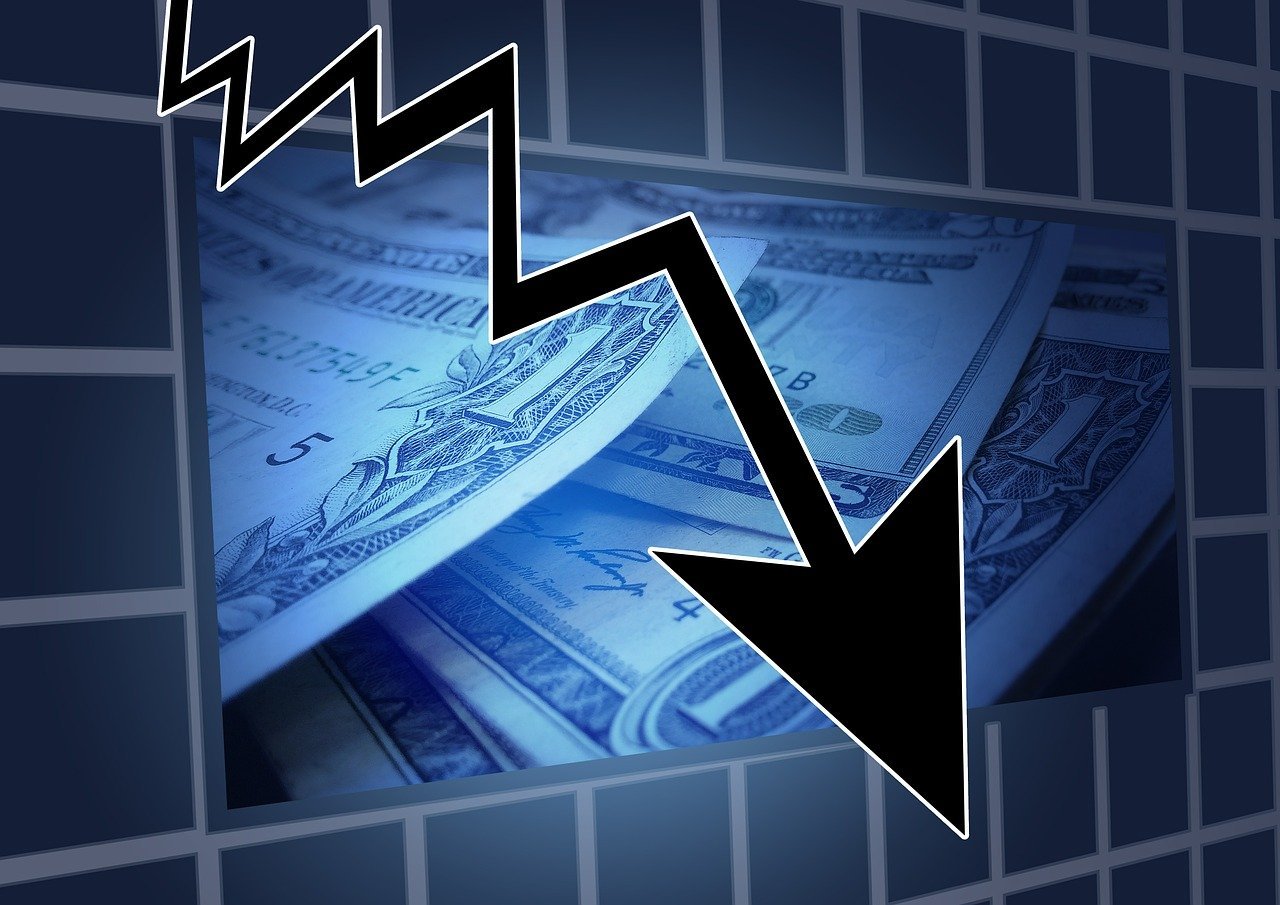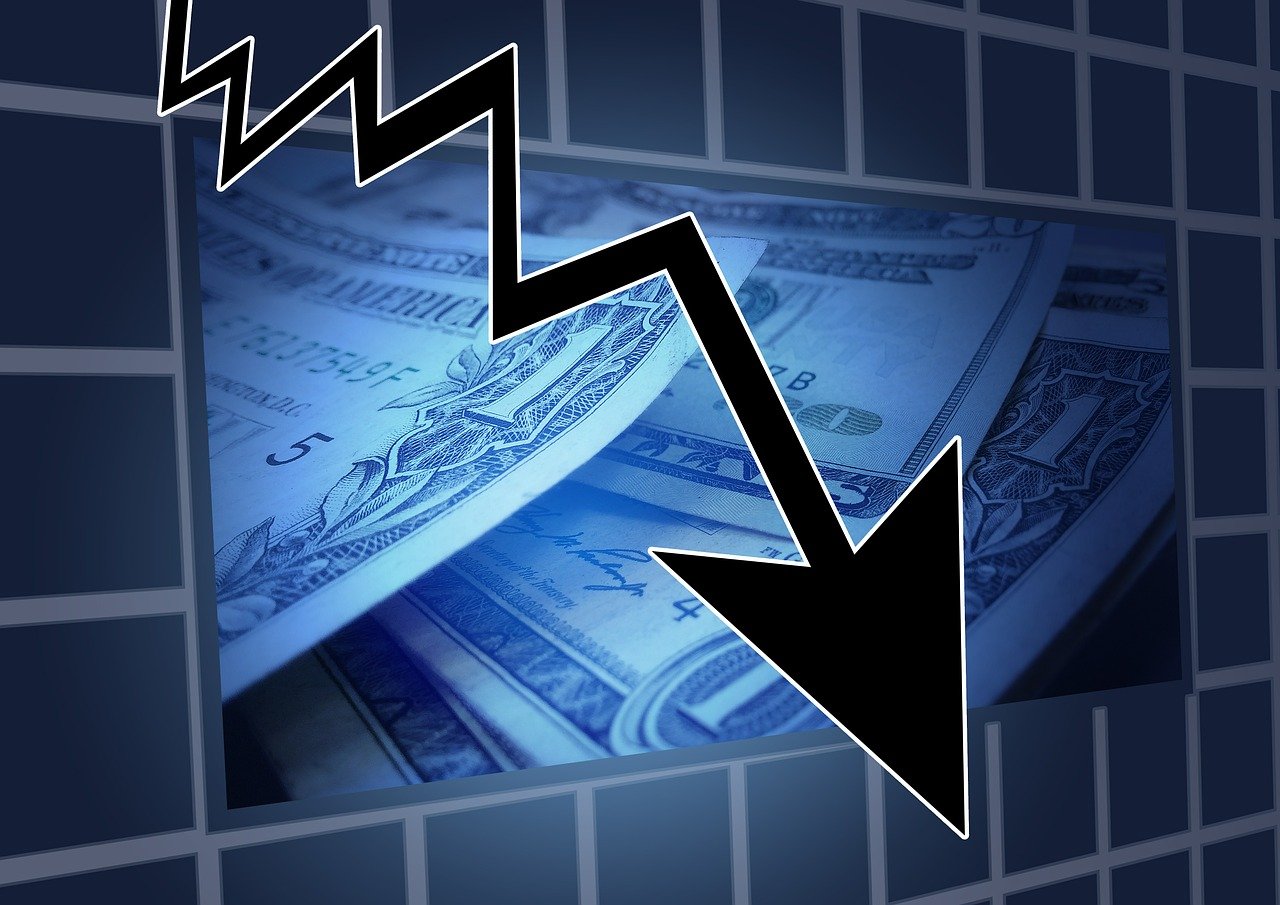In today’s rapidly changing financial landscape, it is crucial to understand the impact of economic recessions on investment strategies. As the economy experiences a downturn, investors face new challenges and unpredictable outcomes. This article explores the ways in which economic recession can disrupt traditional investment approaches, highlighting the importance of adaptability and strategic decision-making during these challenging times. Whether you are a seasoned investor or just starting out, understanding the impact of economic recession on investment strategies is vital for maximizing returns and minimizing risks.

Stock Market
Decline in Stock Prices
During an economic recession, one of the most evident impacts is the decline in stock prices. This is often due to a decrease in consumer spending, reduced corporate earnings, and an overall lack of confidence in the market. Stock prices tend to reflect the current and projected financial health of companies, and during a recession, these indicators are often bleak. As an investor, it is important to be aware of these fluctuations and understand that investing in stocks during a recession comes with an increased level of risk.
Impact on Investment Portfolios
The decline in stock prices can have a significant impact on investment portfolios. If a substantial portion of your portfolio is invested in stocks, the value of your investments may decrease significantly during a recession. It is essential to regularly review and rebalance your portfolio to ensure it remains aligned with your investment goals and risk tolerance. Diversification is key to mitigating some of the risks associated with stock market declines. By allocating your investments across different asset classes, such as bonds, real estate, and commodities, you can potentially offset losses from stocks and protect your overall portfolio value.
Strategies for Investing in a Recession
Investing in a recession requires careful consideration and the implementation of specific strategies. One such strategy is to focus on defensive stocks or companies that tend to perform well even during economic downturns. These may include companies in sectors such as healthcare, utilities, and consumer staples. Another strategy is to look for value opportunities in undervalued stocks. During a recession, the market may irrationally undervalue certain stocks, presenting an opportunity for long-term growth. Additionally, diversifying your portfolio with other asset classes, such as bonds and real estate, can help reduce the overall risk in your investment strategy.
Bond Market
Increased Demand for Bonds
During an economic recession, investors often shift their focus towards safer investments, such as bonds. Bonds are considered less risky than stocks, as they offer fixed income and are backed by the issuing entity, whether it be the government or a corporation. As the demand for bonds increases during a recession, bond prices tend to rise, leading to lower yields. This increased demand for bonds can provide investors with a stable and predictable source of income during uncertain times.
Effect on Interest Rates
The increased demand for bonds during a recession can lead to a decrease in interest rates. When the demand for bonds is high, bond prices rise, and as a result, the yield on those bonds decreases. Lower interest rates can have a significant impact on various aspects of the economy, such as mortgage rates and borrowing costs for businesses. As an investor, it is important to monitor changes in interest rates and adjust your investment strategy accordingly.
Diversification through Bonds
Investing in bonds can offer a level of diversification to a portfolio heavily weighted in stocks. Bonds have historically shown a negative correlation with stocks, meaning that when stocks decline, bonds tend to perform well. By including bonds in your investment portfolio, you can potentially reduce the overall risk and volatility. It is crucial to consider the type of bonds you invest in, such as government bonds, corporate bonds, or high-yield bonds, as each carries its own level of risk and potential return.

Real Estate
Decrease in Real Estate Prices
During an economic recession, the real estate market experiences a decrease in property prices. This decline can be attributed to factors such as reduced demand, stricter lending practices, and an overall decline in consumer confidence. As an investor, a decline in real estate prices can present opportunities for long-term investments, particularly for individuals with a higher risk tolerance and a long investment horizon.
Opportunities for Long-Term Investments
The decrease in real estate prices during a recession can create opportunities for long-term investments. While it may be tempting to take advantage of low prices by buying distressed properties for quick profits, it is important to approach real estate investment with a long-term perspective. Investing in properties with strong fundamentals, such as desirable locations, solid infrastructure, and potential for future growth, can yield significant returns over time. Real estate is a tangible asset that can provide both rental income and potential appreciation, making it an attractive option for long-term investors.
Risks and Challenges
Investing in real estate during a recession comes with its own set of risks and challenges. One of the main risks is the potential for further declines in property values. While it is impossible to accurately predict the bottom of the market, investors must be prepared for the possibility of further price declines in the short term. Additionally, maintaining and managing properties can be a challenge, particularly during an economic downturn when rental demand may be lower. It is crucial to carefully assess the risks and rewards of real estate investment and have a comprehensive understanding of the local market dynamics before making any investment decisions.
Commodities
Volatility in Commodities
Commodities, such as oil, gold, and agricultural products, are known for their volatility even during stable economic conditions. During a recession, this volatility is often amplified as demand for many commodities decreases. This decrease in demand can lead to price declines and increased market volatility. As an investor, it is important to understand this volatility and carefully assess the fundamentals of each commodity before considering any investments.
Investing in Precious Metals
Precious metals, such as gold and silver, are often seen as safe-haven assets during a recession. Their value tends to increase as investors seek refuge from the uncertainty in the stock market and the potential devaluation of fiat currencies. Investing in precious metals can provide a hedge against inflation and currency depreciation. However, it is important to consider the risks associated with investing in precious metals, such as price fluctuations and storage costs.
Considerations for Agricultural Commodities
Agricultural commodities, such as wheat, corn, and soybeans, also experience unique dynamics during a recession. While the demand for these commodities might decrease during an economic downturn, the long-term fundamentals of the agricultural sector remain strong. Population growth and increasing global food demand create a favorable environment for long-term investments in agricultural commodities. However, investing in agricultural commodities requires in-depth knowledge of the sector, including factors such as weather conditions, supply and demand dynamics, and government policies.

Foreign Exchange
Currency Fluctuations
During an economic recession, currency fluctuations become more pronounced as investors seek safe-haven currencies. In times of uncertainty, currencies of countries with stable economies and strong institutions tend to appreciate against currencies of countries facing economic difficulties. These fluctuations can create both opportunities and risks for investors engaging in foreign exchange trading or investing in foreign assets.
Safe-Haven Currencies
Safe-haven currencies are often sought after during a recession due to their perceived stability. Currencies such as the US dollar, Swiss franc, Japanese yen, and gold are commonly considered safe-haven assets. Investors tend to flock to these currencies in times of uncertainty as they are believed to retain their value better than currencies of countries experiencing economic challenges.
Carry Trade Strategies
During a recession, carry trade strategies can be utilized in the foreign exchange market. Carry trade involves borrowing in a low-interest-rate currency and investing in a higher-yielding currency to take advantage of interest rate differentials. However, carry trade strategies come with risks, such as currency fluctuations, geopolitical events, and changes in interest rates. It is important to carefully assess the underlying fundamentals and risks before engaging in carry trade strategies.
Fixed Income Investments
Government Bonds
Government bonds, issued by governments to raise funds, are often viewed as low-risk investments. During a recession, government bonds become more attractive to investors seeking safety and stability. The creditworthiness of sovereign nations is critically important when considering investing in government bonds. Bonds issued by financially stable countries, such as the United States or Germany, are often perceived as safe investments during economic downturns.
Corporate Bonds
Corporate bonds, on the other hand, carry a higher level of risk compared to government bonds. During a recession, the creditworthiness of corporations may be called into question, leading to a higher risk of default. Investing in corporate bonds requires careful evaluation of the issuing company’s financial health, credit rating, and industry dynamics. It is crucial to diversify corporate bond investments across various sectors to mitigate the risk of individual company failures.
High-Yield Bonds
High-yield bonds, also known as junk bonds, are issued by companies with lower credit ratings. These bonds offer higher yields to compensate for the increased risk of default. During a recession, the default risk of high-yield bonds typically rises as companies face financial difficulties. Investing in high-yield bonds requires a higher risk tolerance and careful analysis of credit ratings and financial indicators to minimize potential losses.
Emerging Markets
Opportunities in Emerging Markets
Emerging markets, characterized by economies with rapid growth potential, can present unique investment opportunities during an economic recession. While these markets may experience short-term volatility, they also offer the potential for long-term growth. Investing in emerging markets can provide diversification benefits and exposure to sectors that are not heavily represented in developed markets.
Risks and Challenges
Investing in emerging markets during a recession comes with its own set of risks and challenges. These markets may be more sensitive to economic downturns, political instability, and regulatory changes. Currency risk and liquidity concerns can also be more pronounced in emerging markets. It is crucial to conduct thorough research, assess the political and economic stability of the country, and consider investing through diversified emerging market funds to mitigate these risks.
Long-Term Growth Potential
Despite the risks, emerging markets have shown significant long-term growth potential. Rapid urbanization, a growing middle class, and increased consumer spending contribute to the overall growth trajectory of these economies. Investors with a long-term investment horizon can potentially benefit from the opportunities presented by emerging markets, as long as they are prepared to navigate the associated risks.
Technology Sector
Shifts in Consumer Behavior
During an economic recession, consumer behavior often undergoes significant shifts. Increased financial uncertainty and limited disposable income may lead to a decrease in overall consumer spending. However, certain areas within the technology sector may still experience growth as individuals and businesses rely more heavily on technology for remote work, online shopping, and digital entertainment. Understanding these shifts in consumer behavior can help identify potential investment opportunities within the technology sector.
Investing in Tech Companies
Investing in technology companies during a recession requires careful analysis of the company’s fundamentals, innovation capabilities, and market position. Companies with a strong track record of innovation, a solid balance sheet, and a diversified revenue stream may be better positioned to weather economic downturns. It is important to assess the long-term growth prospects of tech companies and their ability to adapt to changing market conditions.
Digital Transformation Opportunities
The digital transformation of various industries can present significant investment opportunities during an economic recession. Companies that provide cloud computing services, cybersecurity solutions, and e-commerce platforms are all examples of sectors that may experience increased demand during a recession. Investing in companies that enable digital transformation and help businesses adapt to the changing landscape can result in long-term growth and profitability.
Healthcare Sector
Demand for Healthcare Services
The demand for healthcare services tends to remain relatively stable even during economic recessions. People still require medical treatments and medications regardless of the economic environment. Investing in the healthcare sector can provide a defensive investment strategy during a recession. However, it is important to consider factors such as government regulations, patent expirations, and the competitive landscape when evaluating healthcare investments.
Pharmaceutical and Biotechnology Investments
Pharmaceutical and biotechnology investments within the healthcare sector often offer opportunities for growth during a recession. Advances in medical research and the development of innovative treatments can drive long-term profitability for companies in this sector. However, it is crucial to carefully evaluate the drug pipeline, regulatory approvals, and intellectual property protections when considering investments in pharmaceutical and biotechnology companies.
Healthtech Innovation
The digitization of healthcare, often referred to as healthtech, has gained significant momentum in recent years. Healthtech companies focus on leveraging technology to improve patient outcomes, increase efficiency, and reduce healthcare costs. Investing in healthtech companies during a recession can provide exposure to a sector that is experiencing rapid growth and transformative innovation. However, it is important to conduct thorough due diligence and assess the market potential and competitive landscape before making any investment decisions.
Risk Management
Importance of Diversification
Diversification plays a crucial role in risk management during an economic recession. By diversifying your investment portfolio across various asset classes and geographical regions, you can potentially reduce the overall risk exposure. Different assets tend to perform differently during economic downturns, and diversification allows you to minimize losses and capture opportunities across different sectors.
Investment Horizon and Liquidity
Understanding your investment horizon and liquidity needs is important during a recession. If you have a long-term investment horizon and do not require immediate access to your funds, you may have the flexibility to withstand short-term market volatility and wait for potential recovery. On the other hand, if you have short-term liquidity needs, it is important to align your investment strategy accordingly and ensure you have sufficient cash reserves or liquid assets to meet those needs.
Adjusting Investment Strategies
As economic conditions change during a recession, it is important to regularly review and adjust your investment strategies. This may involve rebalancing your portfolio to maintain desired asset allocations, reallocating investments to sectors that may be better positioned to weather the economic downturn, or taking advantage of specific investment opportunities that arise. Regular consultations with a financial advisor can help provide guidance in adjusting your investment strategies based on changing market dynamics.
In conclusion, an economic recession can have a significant impact on investment strategies. Understanding the various effects on different asset classes, such as stocks, bonds, real estate, commodities, foreign exchange, fixed income investments, emerging markets, technology, healthcare, and risk management, is essential to navigate through uncertain times. By diversifying your portfolio, considering long-term investment opportunities, and adjusting your strategies accordingly, you can potentially mitigate risks and capture opportunities during a recession. Remember to consult with a financial advisor to tailor your investment approach to your specific financial goals and risk tolerance.
